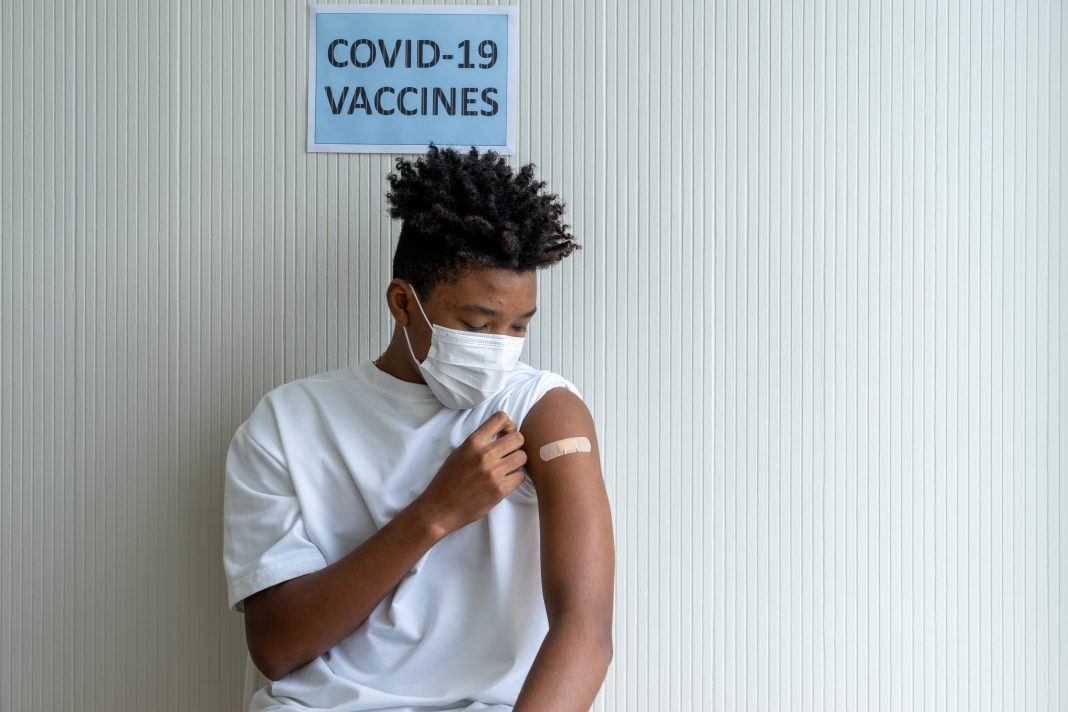Data finds that three vaccine doses can give 86% protection against the Omicron variant, reducing the chances of severe COVID-19 and death
Having three doses of the vaccines developed against COVID-19 are still the most effective form of protection against the virus, preventing COVID-19 associated hospital admissions related to the Alpha, Delta, and Omicron variants.
However, three doses are still necessary for individuals to achieve a similar level of protection against the Omicron variant, which two doses provide against the other Delta and Alpha variants.
Currently, less than 45% of the U.S have received the booster vaccine, so their immunity is lessened against the virus.
Results from a study highlight that severity of disease among patients admitted to hospital is lower with the Omicron versus Delta variants – yet patients with Omicron are still at risk of critical illness and death unless they are fully vaccinated with all three doses.
Calling for routine monitoring of vaccine effectiveness as the pandemic continues to evolve, researchers aim to better understand COVID-19 variants and the effectiveness of vaccines against them, which are essential to guide vaccination policies and development of new vaccines.
Less than 70% of the U.S. population are fully vaccinated against COVID-19
Published in BMJ Today, former studies have suggested that vaccine effectiveness is reduced against infection and hospital admissions for Omicron compared with earlier variants, but still, little is known about the effectiveness of vaccines to prevent the most severe cases of COVID-19.
The severe symptoms of the virus include respiratory failure and death, for patients with infection due to the Omicron variant.
Researchers took data from a portion of 11,690 adults admitted to 21 hospitals across the United States between March 2021 and January 2022: 5728 with COVID-19 cases and 5962 without COVID-19 (known as the controlled group).
To see the protection the vaccines – more specifically, the third doses– provide, researchers analysed the clinical severity of COVID-19 associated with the Alpha, Delta, and Omicron variants among adults admitted to hospital and compared the effectiveness of two and three doses of mRNA vaccines (Pfizer-BioNTech and Moderna) to prevent hospital admissions related to each variant.
These patients were categorised into three variant groups based on viral gene sequencing or by the predominant circulating variant at the time of hospital admission: Alpha (11 March to 3 July 2021), Delta (4 July to 25 December 2021), and Omicron (26 December 2021 to 14 January 2022).
Vaccine effectiveness was then calculated for each variant and disease severity was compared among variants using the World Health Organization’s clinical progression scale, evaluating how severely ill a patient becomes in the hospital.
Delta remains as the most severe variant of COVID-19 for unvaccinated people
Effectiveness of two doses of an mRNA vaccine to prevent hospital admission with COVID-19 was found to be lower for the Omicron variant than Alpha and Delta variants – at 65%, 85%, and 85%, respectively.
Nevertheless, three doses of the vaccine achieved 86% effectiveness against the Omicron variant, as seen with two doses against the Alpha and Delta variants.
Overall, the Omicron variant was associated with large rate of critical illness and death, with 15% of patients admitted to hospital with the Omicron variant, both vaccinated and unvaccinated.
These patients frequently progressed to invasive mechanical ventilation, with around 7% of them dying in hospital due to Omicron. However, vaccinated patients which were admitted to hospital with COVID-19 had significantly lower disease severity than unvaccinated patients for all the variants.
Researchers stated that mRNA vaccines: “were associated with strong protection against hospital admissions with COVID-19 due to the Alpha, Delta, and Omicron variants” and that vaccination against COVID-19, including a third dose of an mRNA vaccine, “is critical for protecting populations against COVID-19-associated morbidity and mortality.”
The researchers further said: “As the covid-19 pandemic continues to evolve, routine monitoring of vaccine effectiveness, especially against severe disease, and surveillance programmes to identify viral variants will be essential to inform decisions about booster vaccine policies and vaccine strain updates.”











